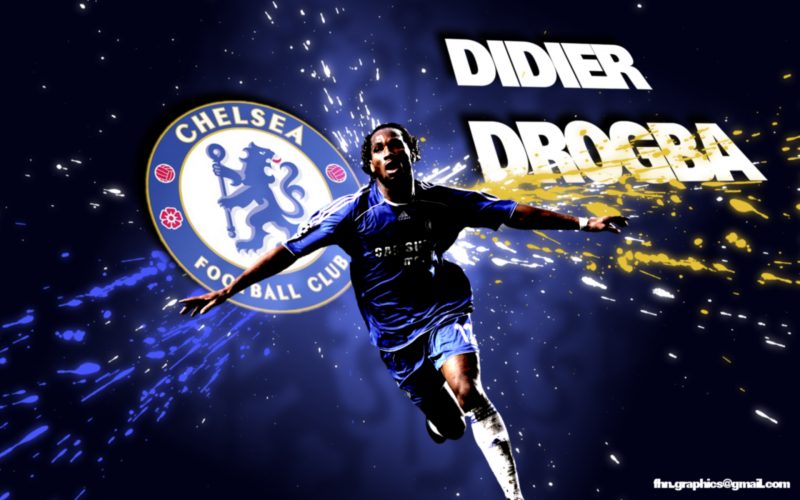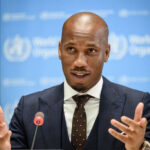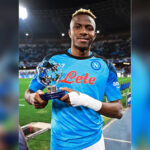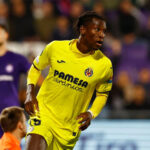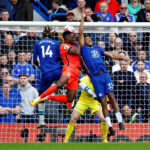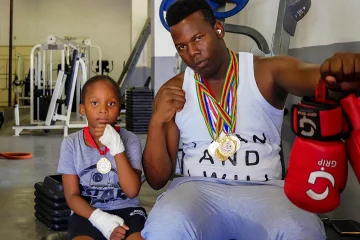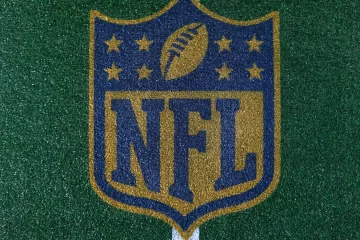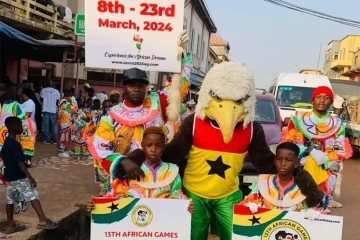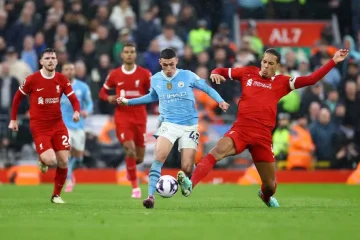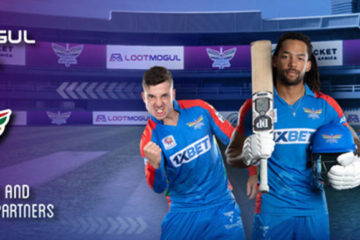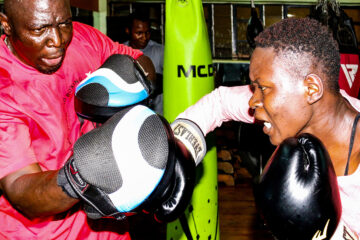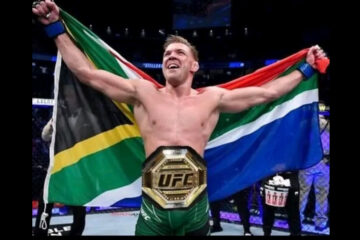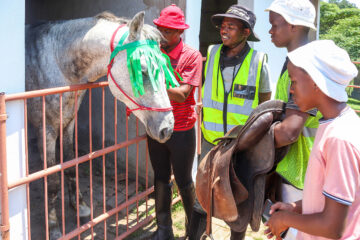
ON a beautiful day in south-west London in June 2019, Didier Drogba is holding court at the ground where he is still a king. Sporting a baseball cap turned backwards as he patiently conducts interview after interview ahead of the Soccer Aid charity match at Stamford Bridge, even four years after he last played for Chelsea and despite the presence of the world’s fastest man Usain Bolt among the cast list, the former Ivory Coast striker is the man everyone wants to talk to. “I scored more beautiful goals but never one as important,” reflects Drogba to one TV crew, looking off into the distance as he thinks back.
He is talking, of course, about the events of 19 May 2012, when Roberto Di Matteo’s side became the first club from London to become European champions thanks in large part to Drogba’s dramatic 88th-minute equaliser against Bayern Munich. After eight years’ service that saw the Ivory Coast striker do more than anyone to help transform the perception of African players in English football forever, it is fitting that Drogba will always be remembered for scoring the winning penalty in the shoot-out.
“That was a special moment for everyone,” recalls Michael Essien, who was an unused substitute at the Allianz Arena that night. “Before the game, I remember Didier saying in the dressing room that we had all worked so hard to get here so now we have to give it our best shot. And then he came up with the goods in the shoot-out . . . It was a massive moment for him because he had missed the chance to take a penalty in Moscow in 2008 when he was sent off.”
Four years earlier, Essien had been the driving force in Chelsea’s midfield in their run to the final against Manchester United having beaten Drogba to becoming the first African to win the club’s Player of the Year award the previous season. An injury crisis meant that the Ghana international played as a stand-in right-back in the thrilling semi-final against Liverpool that saw Chelsea eventually win 4-3 on aggregate thanks to two goals from Drogba, only for his red card and John Terry’s penalty shoot-out miss to deny them victory against Sir Alex Ferguson’s United in the Russian capital.
Both Essien and Drogba had been brought to London by José Mourinho, with the £24.4 million fee paid to Lyon for the former also eclipsing Drogba’s status as Chelsea’s most expensive player following his arrival from Marseille in 2004. Along with former Real Madrid midfielders Geremi and Claude Makélélé – the France international who was born in the Democratic Republic of Congo – there was an unmistakably African core to the squad assembled by Mourinho in his first spell at Stamford Bridge, which underlined how much things had changed since the days of Peter Ndlovu and Tony Yeboah.
“It really helped,” remembers Essien. “When I came there were several African guys already here. I was a bit younger than them all so they were like my big brothers – looking after me, speaking French and having a laugh away from the pitch.”
Chelsea’s African contingent would often wind down after a match with a trip to Peckham in south-east London – an area that was the setting for British sitcom Only Fools and Horses that is now home to a large proportion of families who have moved to the UK from the continent.
“I’ve been there a few times and to Camberwell,” remembers Essien. “We used to go there for African food and there was a club we used to go to as well. It was really good to be able to relax somewhere and everyone was always pleased to see us!”

Best player, but unloved by both sides
Despite scoring just 10 league goals as Mourinho’s expensively assembled squad won the league title in his debut season, however, it wasn’t until Essien joined the club in the summer of 2006 that Drogba’s influence at Chelsea began to grow. In Commitment, his autobiography, the striker describes a match at Manchester City in the 2005/06 season when he was booed by both sets of supporters after being named as man of the match. “What an irony,” Drogba wrote. “Best player, but unloved by both sides. It really hurt.”
An admission after the match that he “sometimes dived” – later claimed by Drogba to have been lost in translation in front of the TV cameras – certainly did nothing to win over some of his enemies. But while his 12 goals helped Chelsea’s romp to another Premier League title, the following season sealed his reputation as one of the most important members of the dressing room. Having won two titles in his first two seasons in English football, this time Mourinho’s side missed out to Manchester United but Drogba’s 20 goals meant he became the first African player to win the Golden Boot, with Blackburn’s South African striker Benni McCarthy in second place ahead of a certain Cristiano Ronaldo. “It is the first time since I have been a professional that I have finished the top scorer and I think there is a lot to be proud of because throughout the year I had difficult moments,” admitted Drogba when he received his award.
Just like Jay Jay Okocha and so many who had come before them, his trip to the top had been far from straightforward. Drogba moved to France at the age of five to live with his uncle – a professional player – before returning to Abidjan due to homesickness. That he eventually made it to Stamford Bridge via the French lower leagues was testament to the striker’s sheer will and determination – traits that were very much on display throughout his time at Chelsea.
“We had lots of players with big characters who were very vocal in the dressing room and Didier was always one of the loudest,” remembers Essien, who pipped his friend to the Player of the Year award that season. “If things were not going well they would always know what to say to motivate everyone. They were great leaders.”
Mourinho’s sudden departure a month into the 2007/08 season after he fell out with owner Roman Abramovich would have destabilised most top clubs. But, not for the last time, the squad’s fighting spirit encapsulated by captain John Terry and supported by the likes of Drogba and Frank Lampard enabled them to reach the Champions League final under Avram Grant. By then, Drogba and Essien had been joined by John Obi Mikel and Salomon Kalou as the number of African players in the Premier League swelled to an all-time high of 59 – or nearly 15%.
Chelsea’s pursuit of Mikel, a Nigerian midfielder who had moved to Norwegian club Lyn Oslo after starring at the Under-17 World Cup, showed just how lucrative the market had become. A settlement with Manchester United eventually saw Chelsea pay £12 million in compensation to secure one of the world’s best young players. The investment paid off as Mikel went on to win two Premier League titles and three FA Cups during his 11 years at Stamford Bridge, not to mention the Champions League.

A promise made in Moscow
He didn’t make it off the bench in 2008, however, as both Drogba and Terry endured personal nightmares in Moscow. Distracted by the ill health of his maternal grandmother before the match, Chelsea’s lone striker had toiled against United’s central defenders Nemanja Vidić and Rio Ferdinand for the majority of the game at the Luzhniki Stadium. With the score locked at 1-1 with just four minutes of extra time to play, an argument which began when Carlos Tevez refused to return the ball for a throw-in ended with Drogba’s dismissal for a pointless flick of Vidić’s chin with his right hand. “Professional suicide,” commented Sky TV’s commentator Martin Tyler.
“I felt as if I was in a nightmare,” Drogba admitted in his autobiography. “I could not believe what had just happened.”
He watched from the tunnel as Cristiano Ronaldo missed his effort in the shoot-out, before Terry’s penalty that would have secured victory struck the outside of the post following the captain’s famous slip. Nicolas Anelka’s failure to score the seventh penalty allowed United to claim a third European crown and left Drogba devastated. “One day I will win the Champions League for you,” he promised Roman Abramovich’s crying son in the dressing room.
Despite their growing importance in European football over the previous two decades, by 2012 only 12 African players had achieved that honour. After Bruce Grobbelaar became the first in 1984, Algerian Rabah Madjer’s brilliant backheel for Porto followed three years later and then Abedi Pelé with Marseille. Finidi George and Nwankwo Kanu were part of the Ajax squad in 1995 under Louis van Gaal while Geremi won two titles with Real Madrid before his move to Stamford Bridge.
Benni McCarthy was the first of the new millennium with Mourinho’s Porto in 2004, with the Portuguese also selecting three Africans – Samuel Eto’o, Sulley Muntari of Ghana and Kenya’s McDonald Mariga – in Internazionale’s matchday squad for their victory in 2010. Eto’o had also been part of the Barcelona side which became European champions in 2006 and again in 2009, alongside Seydou Keïta and Yaya Touré, therefore becoming the first African player to have claimed three winners’ medals.
But while Eto’o would eventually spend two seasons in the twilight of his career at Chelsea and then Everton, Drogba’s moment eventually arrived in the most unlikely of scenarios. When André Villas-Boas was sacked in March 2012 after losing the first leg of their last-16 tie against Napoli, the appointment of Roberto Di Matteo suddenly transformed an ageing squad which had been seriously underperforming. Drogba scored the first goal at Stamford Bridge as the 3-1 deficit against the Italians was overturned in a thrilling 4-1 victory, with the Ivorian also claiming the crucial strike in the first leg of the semi-final against Barcelona before an epic comeback in the 2-2 draw at the Camp Nou sent Chelsea through to the final.
Yet, with seven minutes to play against Bayern, it appeared they had finally run out of luck. Three African players – Drogba, Mikel and Kalou – had started the game but when Chelsea fell behind to Thomas Müller’s goal, their talisman feared the worst. “For me that was it. Game over,” Drogba wrote. With just two minutes of normal time remaining, however, his moment of redemption arrived from Juan Mata’s brilliant corner, outleaping his marker at the near post before heading the ball powerfully into the net. Petr Čech’s penalty save to deny Arjen Robben after Drogba’s clumsy challenge had brought down Franck Ribéry in the area during extra time seemed to suggest it may be his night, and so it proved.
“You love being in this position,” Drogba told himself as he lined up to take the penalty that would win the shoot-out. “If you score, we win. If you miss, you miss. But you love that responsibility.”

A United Nations of sort
Having despatched the ball to the right side of Manuel Neuer’s goal, he ran directly to embrace Čech before being smothered by the rest of his teammates. Chelsea had made history. Not only were they the first London club to win European football’s most prestigious trophy but, for the first time, there had been four African players in Di Matteo’s matchday squad, even if Essien didn’t make it on to the pitch this time.
“We played a big part in making Chelsea what it is today and that is something I’m very proud of,” he says seven years on. “We were a good mix of Brazilians, Portuguese and English players – that’s what made that team so special.”
Drogba would return for one more title-winning final season at Stamford Bridge under Mourinho in 2014 and end up racking up an African record 104 Premier League goals in total. Essien spent a year on loan at Real Madrid before spells in Italy, Greece and Indonesia. He is now preparing for the next stage of his career as a coach for Azerbaijani side Sabail but looks back on his time in England with great fondness.
“It was my dream come true,” Essien adds. “As a young boy I always wanted to play in the Premier League so I was very excited and keen to make a good impression. Back home, we used to watch all the matches on television and it was England that everyone wanted to play. Thank God I got that opportunity and made a good impression. As an African player, you have to make a lot of sacrifices and put in the work. It’s not easy to leave your family behind and go such a long way from home but we all tried to do our best and make a good career.”
Their success can be measured by Chelsea’s continued popularity throughout Africa. For a club which has fought hard to rid itself of an image that became tarnished by some sections of its support in the past, the role players like Drogba, Essien, Mikel and Kalou played in changing attitudes in the stands should not be underestimated. As for the effect they had on the reputation of African players as a whole in English football, Essien is delighted to have played his part.
“It’s very good,” he says. “I’m proud to watch how well they are doing because we know we helped to make that happen. We were all part of the story that created pathways for the next generation.”

This is a lightly edited excerpt from Made in Africa: The History of African Players in English Football by Ed Aarons (Arena Sport, 2020).


